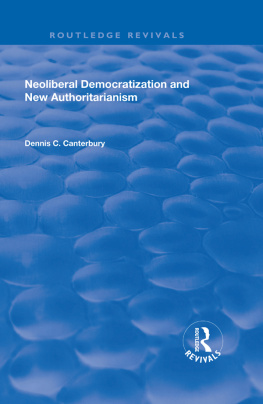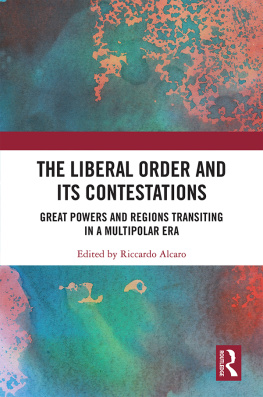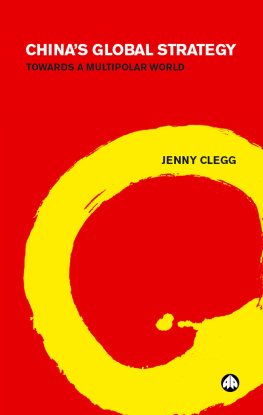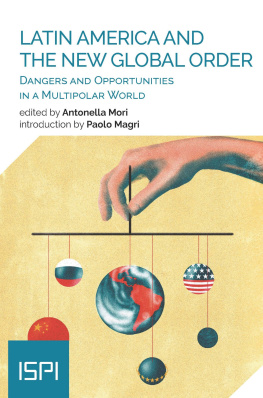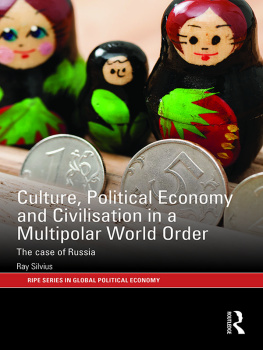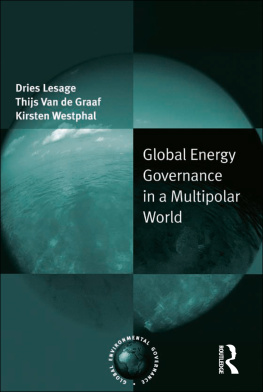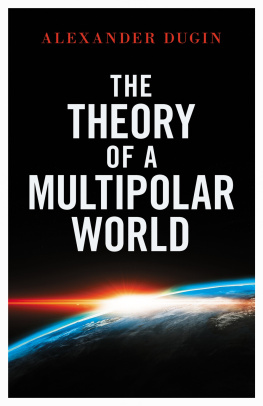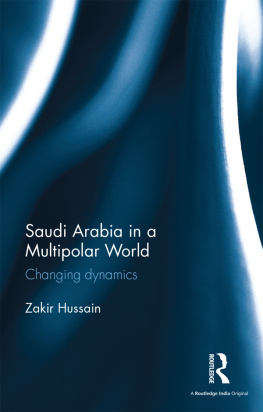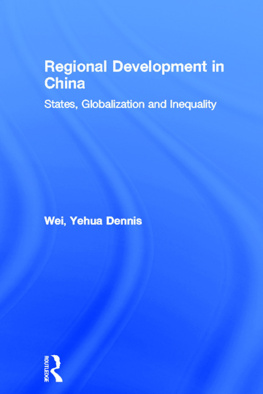
Caribbean Development in the New Multipolar World Order
This book addresses the subject of critical development alternatives for the Caribbean Community (CARICOM) states in a post-neoliberal, new multipolar world order based on competition and co-operation by the United States, the European Union, China, and Russia for natural resources and markets. Neoliberal globalization has traditionally restricted economic and political activities in the Caribbean region to Western-style free-market capitalism and liberal democracy. However, through an exploration of the new multipolar world order, which replaces the US-led unipolar global order that existed since the collapse of the former Soviet Union, the author argues that today, the Caribbean Community states now have real economic and political options for development alternatives. Through examining how countries such as China and Russia have risen to economic success in recent years, the book seeks to explore how the Caribbean Community states might adopt such features which would allow them to formulate another development, such as introducing measures which can bring about a reconciliation between resource use and endowment, and reduce inequalities. As such, it will appeal to scholars of sociology and development studies with interests in the Caribbean region and world order.
Dennis C. Canterbury is Professor of Sociology at Eastern Connecticut State University, USA.
Capitalism, Power and the Imperial State
In an increasingly turbulent political landscape, this series addresses disputed theoretical and conceptual issues within the realms of political sociology and political economy, to evaluate the shifting dynamics of global power in the modern age. With attention to the ever-changing contours of economic and political world power, Capitalism, Power and the Imperial State invites contributions from scholars looking to advance the debate between theorists of globalization and advocates of class analysis and imperialism, as well as those interested in unpacking the economic configurations of power. Focusing on how power affects, and is affected by, both the higher and lower ranks of society, it seeks to investigate the relationship between the capitalist state and imperial power, the rise of emerging regional rivalries, and polarization within the imperial state between sectors of the deep state and the regime. A timely and important opportunity to review the ongoing crisis of the capitalist state, and to evaluate the social and political factors that influence the balance of global power in the twenty-first century, this series invites research which pays attention to the impact of the class struggle on global alignments of power, and the impact of such power on the global class war between capital and labour.
Series Editors
Henry Veltmeyer is Senior Research Professor of Development Studies at the Autonomous University of Zacatecas, Mexico; and Professor Emeritus of International Development Studies at Saint Marys University, Canada.
James Petras is Bartle Professor Emeritus of Sociology at Binghamton University, USA.
Titles in this series
Latin America in the Vortex of Social Change
Development and Resistance Dynamics
Henry Veltmeyer and James Petras
For more information about this series, please visit:
www.routledge.com/Capitalism-Power-and-the-Imperial-State/book-series/CPIS
First published 2022
by Routledge
2 Park Square, Milton Park, Abingdon, Oxon OX14 4RN
and by Routledge
605 Third Avenue, New York, NY 10158
Routledge is an imprint of the Taylor & Francis Group, an informa business
2022 Dennis C. Canterbury
The right of Dennis C. Canterbury to be identified as author of this work has been asserted by him in accordance with sections 77 and 78 of the Copyright, Designs and Patents Act 1988.
All rights reserved. No part of this book may be reprinted or reproduced or utilised in any form or by any electronic, mechanical, or other means, now known or hereafter invented, including photocopying and recording, or in any information storage or retrieval system, without permission in writing from the publishers.
Trademark notice: Product or corporate names may be trademarks or registered trademarks, and are used only for identification and explanation without intent to infringe.
British Library Cataloguing-in-Publication Data
A catalogue record for this book is available from the British Library
Library of Congress Cataloging-in-Publication Data
A catalog record has been requested for this book
ISBN: 9780367552039 (hbk)
ISBN: 9780367552046 (pbk)
ISBN: 9781003092414 (ebk)
DOI: 10.4324/9781003092414
Typeset in Times NR MT Pro
by KnowledgeWorks Global Ltd.
To the memory of Abayomi Seitu Osaze (Charles Waldron)
November 5th, 1948 July 15th, 2020
Comrade and Revolutionary Artist in the
Working Peoples Alliance, Guyana
Contents
2The imperialist frameworks of Caribbean development
3The Caribbean in the New American Century
4The Caribbean making America great again
5The new multipolar world order
6Theoretical advances with Caribbean capitalist development
7The CARIFORUM-EU EPA and Brexit
8Neoliberal financialization in the Caribbean
9Caribbean agriculture in the new multipolar world order
10PetroCaribe and the CARICOMChina development alternative
11ChinaUS policies and the CARICOM
12Conclusion: Economic policy for the new multipolar world order
- Half Title
- 2 The imperialist frameworks of Caribbean development
- 3 The Caribbean in the New American Century
- 4 The Caribbean making America great again
- 5 The new multipolar world order
- 6 Theoretical advances with Caribbean capitalist development
- 7 The CARIFORUM-EU EPA and Brexit
- 8 Neoliberal financialization in the Caribbean
- 9 Caribbean agriculture in the new multipolar world order
- 10 PetroCaribe and the CARICOMChina development alternative
- 11 ChinaUS policies and the CARICOM
- 12 Conclusion: Economic policy for the new multipolar world order
DOI: 10.4324/9781003092414-1
Introduction
This book employs a historical critical development studies method to undertake a post-neoliberal globalization analysis of development alternatives for the Caribbean in the new multipolar world order (NMWO). The goal is to shift the analysis of Caribbean political economy off the deconstructionist perch it occupied in the neoliberal era, to new constructionist explorations in the NMWO. The analysis, therefore, falls under the purview of the critical tradition of the golden age in Caribbean political economy that vigorously searched for and attempted to construct development alternatives to colonial capitalist exploitation. The Caribbean Community countries are in the political independence stage of their evolution, from their status as colonies of imperial European powers to autonomous self-governing nation-states. Political independence however was a mechanism to continue the utilization of the new countries economic resources for capital accumulation in the imperial European economies. These countries have had half a century to transcend that neocolonial trap set for them at the time of their political independence. Also, the neoliberal globalization era that constrained their economic and political behaviors within the boundaries of free-market fundamentalism and neoliberal democratization is over. Their political and economic actions must now reflect the evolutionary phase of their development. The Caribbean states are at a historical conjuncture at which they have had 50 years to unshackle neocolonial relations, and neoliberal globalization economic relations that fettered them for three decades. They must now embark on a new course of development in the post-neoliberal NMWO.



